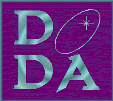You are here
1996 Brouwer Award Winner - Frank H. Shu
Dr. Frank Shu of the University of California at Berkeley was announced at the winner of the 1996 Dirk Brouwer Award of the Division on Dynamical Astronomy for superb scholarship and powerful insight in his contributions to galactic and stellar dynamics, star formation, and the dynamics of planetary rings. Shu has authored books on astronomy and astrophysics. His public service contributions include committee work for the National Academy of Sciences and the American Astronomical Society. Professional offices include President of the American Astronomical Society (1994-1996).
On the dynamical structure of disk galaxies, Shu (with the early collaboration of C. C. Lin) developed the density wave theory for spiral galaxies. He showed that gas flow in disk galaxies is unstable against Parker's instability in the presence of an interstellar magnetic field.
Shu has studied mass exchange in interacting binaries. He has also investigated the existence and growth of gravitational instabilities in nearly Keplerian disks and postulated that they lead to binary formation.
Shu is the theoretical driving force in the theory of star formation. He has studied the formation of protostellar disks from the gravitational collapse of cores of slowly rotating isothermal gas clouds, photoevaporation of protostellar disks around massive stars, and the outflow from rapidly rotating magnetic protostars. His investigations of gravitational collapse of stellar systems have implications for both stellar clusters and galaxies.
The wealth of ring data from the Voyager spacecraft motivated studies of wave propagation in planetary rings by Shu and others. This includes bending waves in Saturn's rings, a nonlinear spiral density wave theory, and viscous damping.
Books written by Shu include "The physical universe: an introduction to astronomy", "The Physics of Astrophysics, I: Radiation" and "The Physics of Astrophysics, II: Gas Dynamics."
In the area of public service Shu has served on numerous committees of the American Astronomical Society and National Academy of Sciences. He was chair of the Astronomy Department at Berkeley (1984-1988). From 1994-1996 he was President of the American Astronomical Society.
